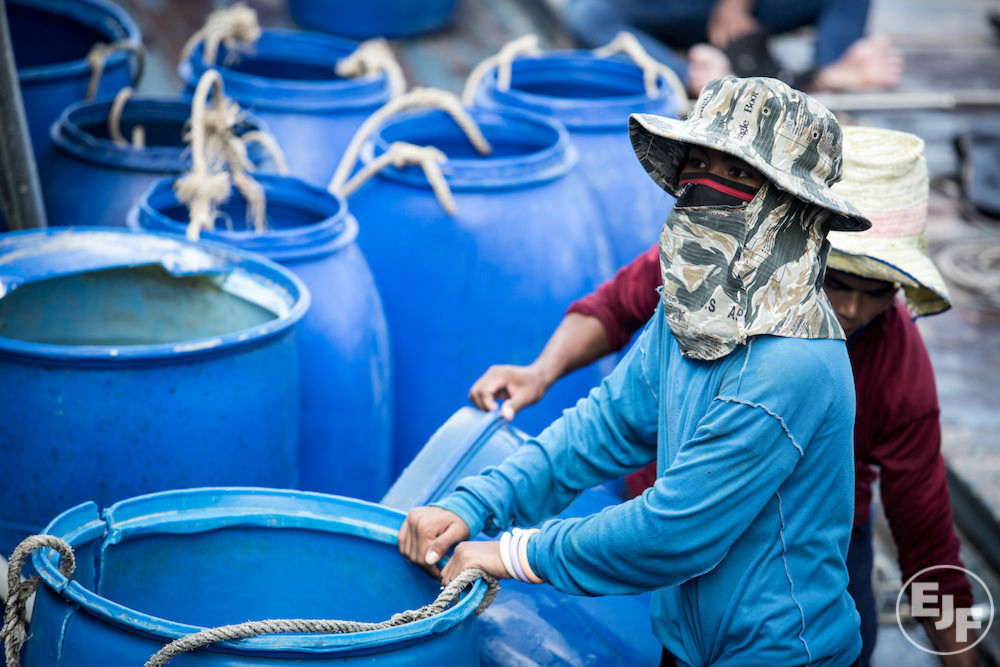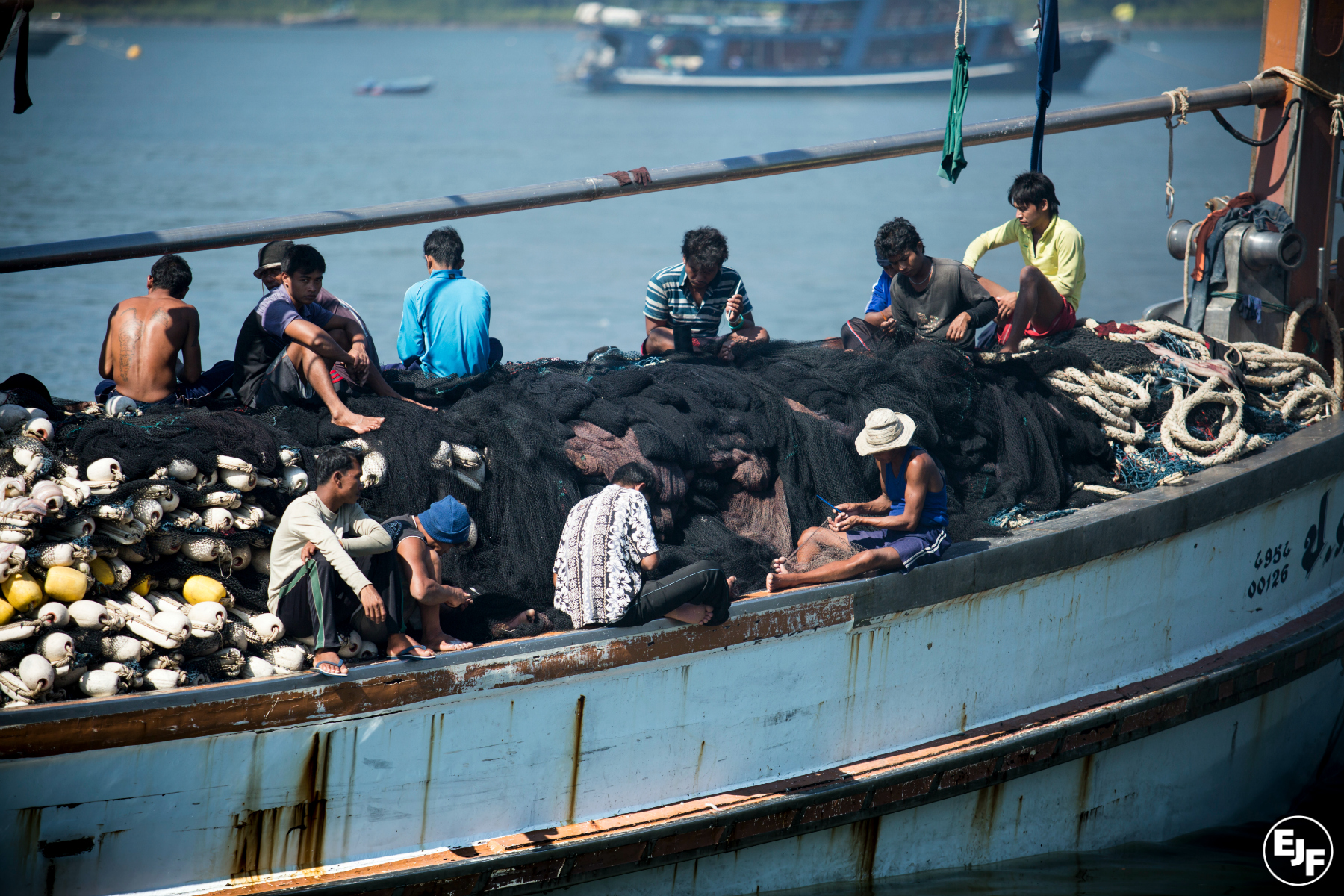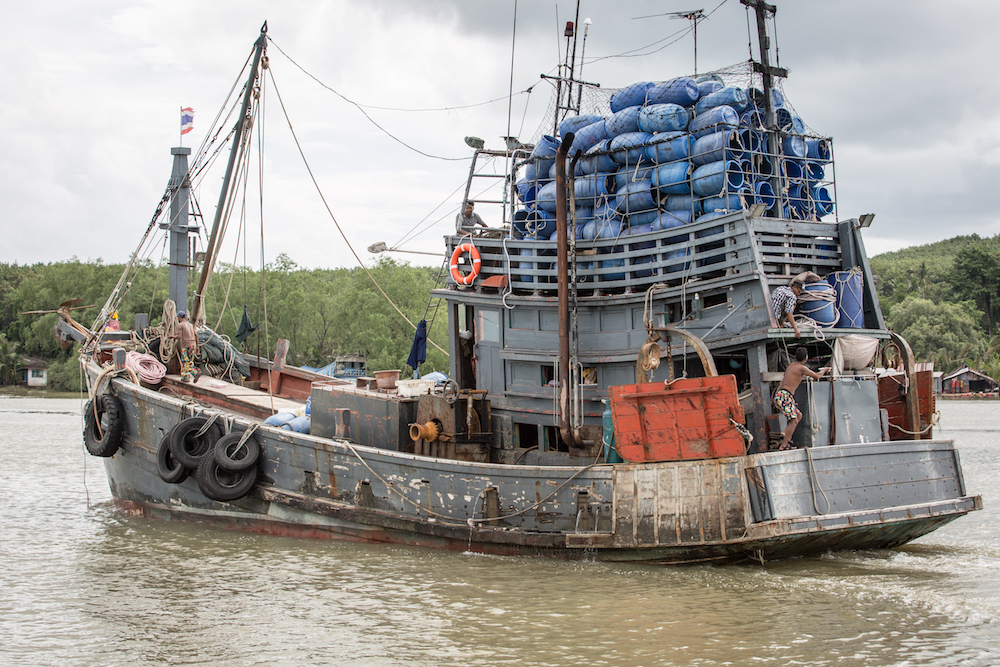
Ending slavery at sea
Today marks Anti-Slavery Day in the UK. This evening, Bristol MP Kerry McCarthy will lead a committee debate in the Houses of Parliament on ending labour exploitation and slavery in supermarket supply chains, using the Environmental Justice Foundation’s work on bringing to light human rights abuse in the Thai seafood industry as an example.
EJF has long worked to shine a spotlight on the global problem of slavery at sea. Through the very nature of their work, fishers are especially vulnerable to forced labour, operating as they do in isolated and hazardous conditions far from the gaze of responsible authorities.
Compounding these problems, as fish stocks are near-exhausted and global demand is at an all-time high, vessels are now going further afield, often fishing illegally and staying longer at sea, to bring back ever-diminishing catches. The subsequent rise in fishing costs and loss of profits have left workers particularly at risk of trafficking, slave labour and abuse, as unscrupulous companies attempt to keep costs low.
Thailand is the world’s third largest exporter of seafood, employing more than 800,000 people in the sector. And yet EJF’s film on Thailand’s seafood slaves revealed that living conditions aboard the fishing boats are abysmal. Malnourishment and serious injuries are routine; fishers have reported being force-fed amphetamines to work 20-hours shifts for days at a time; executions and murder are carried out openly to suppress dissent and cultivate fear.
Although much genuinely good work has been done by the Thai Government to combat these abuses, they still have yet to ratify and implement key international standards, notably the International Labour Organization’s Work in Fishing Convention (C188). Until they do this, all too many of these abuses will continue.
EJF also recently exposed human rights violations on board the Taiwanese Fuh Sheng 11, which included 22-hour working days, dangerous working conditions and beatings from the captain.
Increased transparency in the sector is a key weapon against such abuses. If each country set up a publicly available digital database of vessel data, including information on fishing vessel registration, licenses, catch and crew, this could enable catches to be certified as fished legally and ethically. Supermarkets sourcing seafood could be safe in the knowledge that there was no trace of human rights abuse in their supply chains.
Overfishing, pirate fishing and modern slavery are part of a vicious cycle. Ending this cycle of abuse requires coordinated action from governments, industries, supermarkets and consumers.
Watch Thailand’s seafood slaves.
SIGN UP FOR OUR EMAILS AND STAY UP TO DATE WITH EJF

